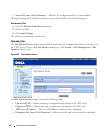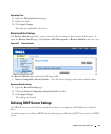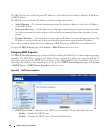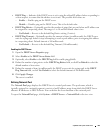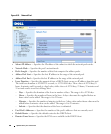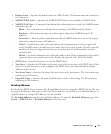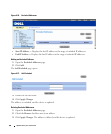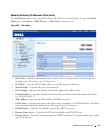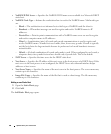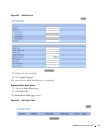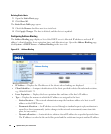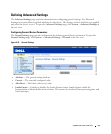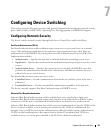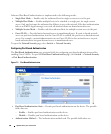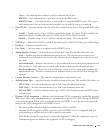
90 Update with your book title
•
NetBIOS WINS Server —
Specifies the NetBIOS WINS name server available to a Microsoft DHCP
static host.
•
NetBIOS Node Type —
Informs the workstation how to resolve the NetBIOS name. Valid node types
are:
–
Blank —
The workstation is not informed as to which type of NetBIOS node the client is.
–
Broadcast —
IP broadcast messages are used to register and resolve NetBIOS names to IP
addresses.
–
Peer-to-Peer —
Point-to-point communications with a NetBIOS name server are used to register
and resolve computer names to IP addresses.
–
Mixed —
A combination (mix) of b-node and p-node communications is used to register and
resolve NetBIOS names. M-node first uses b-node; then, if necessary, p-node. M-node is typically
not the best choice for larger networks because its preference for b-node broadcasts increases
network traffic.
–
Hybrid —
A hybrid combination of b-node and p-node is used. When configured to use h-node, a
computer always tries p-node first and uses b-node only if p-node fails. This is the default.
•
SNTP Server —
Specifies the time server for the DHCP static host.
•
Next Server —
Specifies the IP address of the next server in the boot process of a DHCP client. If the
next server in the boot process is not configured, the DHCP Server uses inbound interface helper
addresses as boot servers.
•
Next Server Name —
Specifies the name of the next server in the boot process. The server name may
contain up to 64 characters.
•
Image File Name —
Specifies the name of the file that is used as a boot image. The file name may
contain up to 128 characters.
Adding a new Static Host
1
Open the
Static Hosts
page.
2
Click
Add
.
The Add Static Host page opens:



